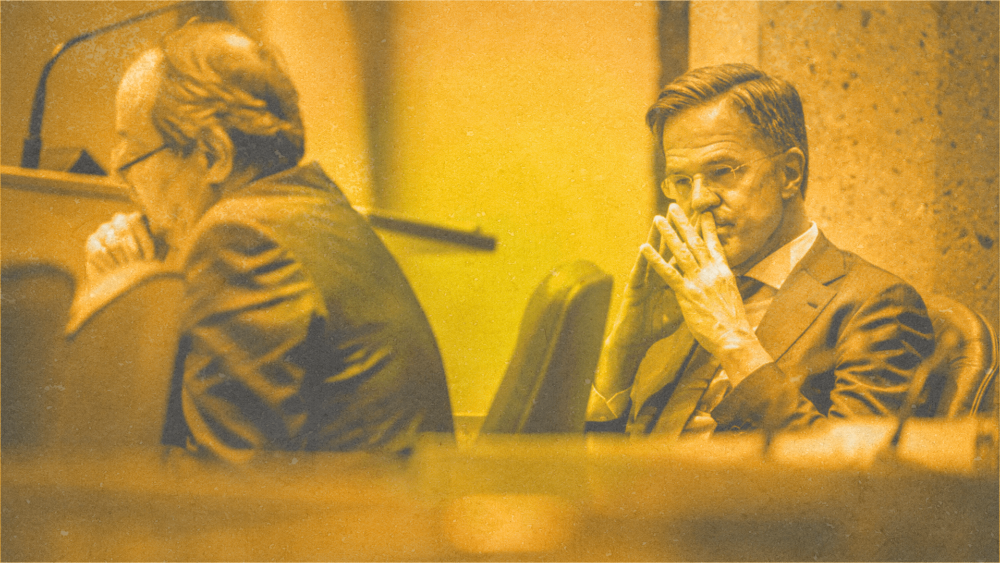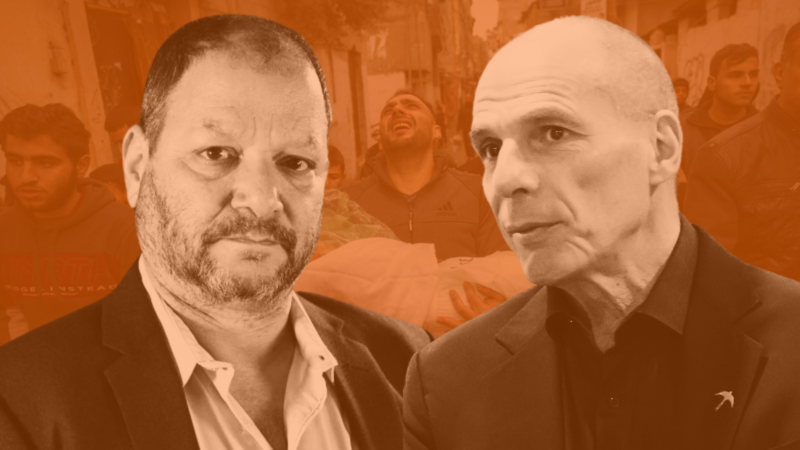Rutte’s government fell due to the failure of the entire Dutch political elite to recognise the root cause of coerced migration and instead focus only on particular symptoms of it
The ‘official’ narrative about the falling of Mark Rutte’s fourth government is that he pushed a stricter immigration policy than his coalition partners were ready to accept. More specifically, he wanted to restrict immigrants entering the Netherlands through the family reunification process to 200 people per month.
Family reunification is the most common reason for people to migrate to the Netherlands, the second most common being work. When looking at migration from within the EU, work is the main common reason. Interestingly, roughly the same amount of people came to the Netherlands for family reasons from within and without the EU. It is therefore telling that Rutte and his VVD party chose to drive this particular policy – regarding of course only the non-EU migrants as migration within EU is legislated on EU level – to a point that resulted in the collapse of the government. Rutte and VVD have no problem with Romanians being recruited to work in the sweatshops here in deplorable conditions, but they can’t have Syrian, Afghan or African families be reunited after some of them have made the gruelling journey over desert and sea and paid a fortune to smugglers in order to have a chance for a decent life.
The price of maintaining the status quo
While it might seem noble from the coalition partners to hold some standard of humanity in opposing Rutte’s strict policy (although it later turned out that they were more compromised by the other parties than it initially seemed), the real reason for the fall of the government is that the political elite in the Netherlands is not ready to accept the responsibility of really solving this issue in any meaningful way. The same applies to the whole of Europe and the US as well. The powers of the Global North have shaped – and continue to shape – the political and economic landscape of the world in ‘their image’. And the Netherlands have played no small part in this, being one of the first imperial powers and birthplaces of capitalism. More recently, that image has increasingly become that of an oligarchy; political and economic power is in fewer and fewer hands. The citizens in the Global North have been convinced that this system serves them, and they faithfully vote for the parties and politicians that maintain the status quo.
And the status quo will be maintained as long as the political debates don’t reach beyond the ‘hot topics’ of the day; be it the family reunification – not that there actually has been much debate about it in the Netherlands – or the conditions of asylum seekers in Ter Apel, the only location in the country for processing asylum seekers; or the many devastating reports of immigrants dying trying to cross the Mediterranean or the North African deserts. The discussion never touches the root causes of coerced migration. It is unimaginable for a politician – apart from the small leftist parties PvdD and Bij1 – to raise the point that the way of life in the Global North has been achieved, and is maintained, through the above-mentioned global oligarchy.
Addressing symptoms instead of causes
Debates about the nitrogen problem of Dutch agriculture, now preventing many construction projects of things like much-needed new housing, never question why the Netherlands has to be the second-largest exporter of agricultural products in the world with over 200 times less agricultural landmass than the first one (United States). Or how this is causing migration as the local economies are not able to sustain their communities. And how EU agricultural policies are contributing to all this.
All this and more is explained in the DiEM25’s second green paper on migration, A Planet Without Borders. The paper also mentions that the cost of housing, education and healthcare for Ukrainian refugees across the EU for the first year was 30 billion euros. This is the nearly same amount the Dutch government pays – or rather loses in tax revenue – annually in subsidies to the fossil fuel industry – a fact that Extinction Rebellion has been protesting against through increasingly popular demonstrations in The Hague. On the EU level, the fossil industry subsidies are 137 billion euros annually just through direct subsidies, tax breaks and exemptions. And while subsidies are pumped to industries contributing to coerced migration, the budget of FRONTEX has more than doubled since 2020 to 754 million euros in 2022, nearly 9 times the budget of 2012.
Whose logic are you buying?
In oligarch logic, this of course makes perfect sense. As long as these industries, that bring them handsome profits, are subsidised by states and EU – i.e. by taxpayers – the costs of immigration, whether trying to prevent it or manage the immigration population that have made it in (so-called integration), can be written off as risk and included in the pricing of food, housing, energy, etc. In the political rhetoric it’s easy to blame the immigrant for these rising prices as at a quick glance – and the common worker won’t have time for more as they’re too busy making ends meet in the rat race that is our economy – it indeed seems logical that war, climate change and increasing demand due to immigration is the cause of inflation and rising prices.
Buying this oligarchic logic, people in the Global North are content with the relatively affordable prices of commodities and oblivious to the price of human suffering people in the Global South pay for their privilege, let alone the increasing profits the oligarchs make out of the suffering of all others.
The real reason for the falling of the Dutch government is not the moral standing of some of the coalition partners on a particular humanistic issue. Rutte’s last government – he has since announced that he will retire from politics – failed due to the continuing failure of the entire Dutch political elite to recognise the root cause of coerced migration and focus on particular symptoms of it. The Dutch society has been very slow in coming to terms with its colonial past. In the globalised world, national governments and politicians need to recognise their responsibility for the condition of global politics and economics and their role in it. Until that happens, the future governments will keep on falling on one or another moral failure (the previous Rutte government fell on racist tax policy).
We have witnessed Dutch politics – as that of many other European countries – slide to the right of the political spectrum in recent decades. The increasingly right-wing governments around Europe will keep on falling as long as some of their colleagues have some moral spine. We, the progressive forces, must keep supporting that spine and help it grow into a full body that embraces the systemic view communicated in the DiEM25 policies and recognises that we cannot “have our cake and eat it”. It makes no sense – economically, politically, nor morally – to maintain a system that benefits a select few with a huge price to be paid for by, not only the rest of the human population, but the planet as a whole with all its lifeforms.
Do you want to be informed of DiEM25's actions? Sign up here















